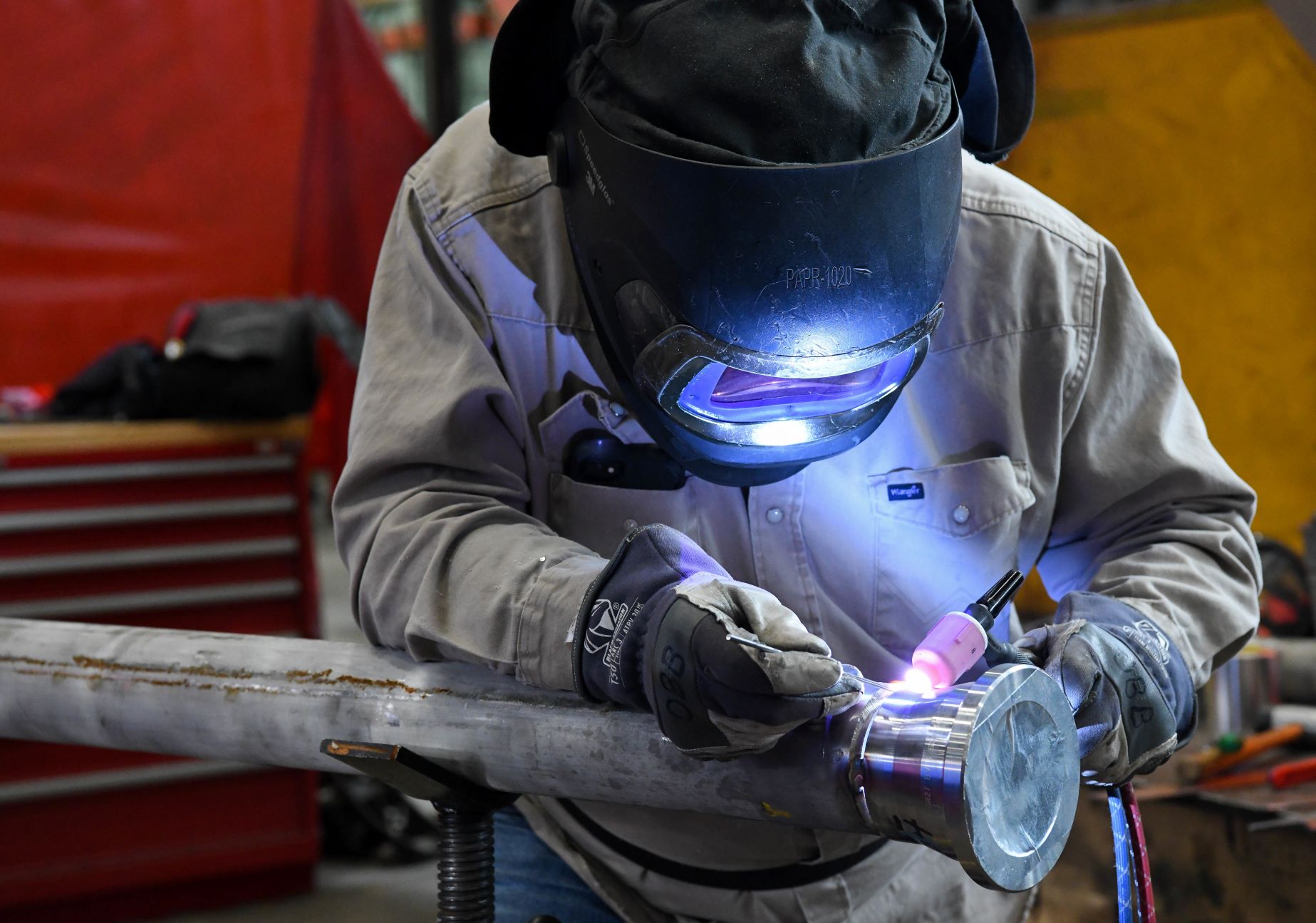
Welding is a specialized skill that plays a crucial role in various industries such as construction, manufacturing, and automotive. Welders are highly skilled professionals who use their expertise to join metals together through the application of heat and pressure. While many may perceive welding as a simple task, it is a complex process that requires precision and attention to detail.
In this article, we will explore 11 fascinating facts about welders that highlight the importance of their role and the skills they possess. From the origins of welding to the advancements in technology that have revolutionized the field, these facts shed light on the world of welders and their contributions to the industries they serve.
Key Takeaways:
- Welders are highly skilled professionals who work with a wide range of materials to create strong connections and ensure the safety of important structures like buildings and bridges.
- The demand for skilled welders is high, and they have the opportunity to work in diverse industries, from manufacturing and construction to artistry and innovative projects.
Welders work with various materials.
From steel and aluminum to exotic alloys, welders have the ability to join different types of materials together, creating strong and durable connections.
Welders ensure the integrity of structures.
By using their welding skills, welders help ensure the safety and structural integrity of buildings, bridges, pipelines, and other crucial infrastructure.
Welding has a rich history.
The practice of welding dates back thousands of years, with evidence of welding techniques being used in ancient civilizations such as Egypt and Greece.
Welding can be done underwater.
Underwater welders play a vital role in industries such as offshore oil and gas, as they are responsible for maintaining and repairing underwater structures and pipelines.
Welders undergo extensive training.
Becoming a skilled welder requires dedicated training and practice. Many welders receive formal education through technical schools or apprenticeship programs.
Welding offers a variety of career paths.
Welders have the opportunity to work in diverse industries, such as manufacturing, construction, automotive, aerospace, and even artistry.
Welding requires attention to safety.
Welders are trained to prioritize safety while working with hazardous materials and high temperatures. Protective gear and proper ventilation are crucial in welding environments.
High demand for skilled welders.
With the constant need for infrastructure development and maintenance, the demand for skilled welders remains high in various industries.
Welding technology continues to evolve.
New techniques, equipment, and materials are constantly being developed in the field of welding, allowing for more efficient and precise welding processes.
Welders can specialize in specific types of welding.
From MIG and TIG welding to underwater and robotic welding, welders can specialize in specific techniques based on industry requirements and personal interest.
Welders contribute to innovative projects.
Welders play a vital role in bringing innovative ideas to life, whether it’s creating intricate metal sculptures or constructing cutting-edge architectural designs.
Conclusion
Welders are skilled professionals who play a vital role in various industries. From construction to manufacturing, their expertise in joining metals is crucial for creating structures and products that we rely on every day. Hopefully, the 11 facts mentioned above have provided you with a deeper understanding of the world of welders and the important work they do. Whether you are considering a career as a welder or simply curious about the profession, it’s clear that these individuals are the backbone of many industries, using their technical skills and precision to shape our modern world.
FAQs
1. What qualifications do I need to become a welder?
To become a welder, you typically need a high school diploma or equivalent. You can also pursue formal training through vocational schools or apprenticeship programs.
2. What are the different types of welding techniques?
There are several welding techniques, including MIG (Metal Inert Gas), TIG (Tungsten Inert Gas), Stick Welding, and Arc Welding. Each technique has its own advantages and applications.
3. How much do welders earn?
The salary of a welder can vary depending on factors such as experience, location, and industry. On average, welders can earn a median annual wage of around $42,000.
4. What safety precautions do welders need to follow?
Welders need to adhere to strict safety guidelines to protect themselves from hazards such as exposure to fumes, burns, and electric shock. This includes wearing protective gear, working in well-ventilated areas, and following proper welding procedures.
5. Can women become welders?
Absolutely! Welding is a profession open to individuals of all genders. Women have been breaking barriers in the welding industry and making significant contributions.
6. Are there any environmental impacts associated with welding?
Welding can produce fumes and emissions that may have environmental consequences. However, modern techniques and equipment have significantly reduced the environmental impact compared to older methods.
7. Is welding a physically demanding job?
Yes, welding can be physically demanding, requiring strength, stamina, and dexterity. However, proper training and ergonomic practices can help minimize the strain on the welder’s body.
8. Can I pursue a career in welding without a college degree?
Yes, many successful welders have built their careers without a college degree. However, obtaining formal training and certifications can improve job prospects and earning potential.
9. Are there opportunities for advancement in the welding field?
Yes, there are opportunities for advancement in the welding field. With experience and additional certifications, welders can move into supervisory roles, become welding inspectors, or even start their own welding businesses.
10. What industries employ welders?
Welders are employed in various industries, including construction, manufacturing, automotive, aerospace, shipbuilding, and oil and gas.
11. How can I become a certified welder?
To become a certified welder, you typically need to complete a welding program, gain hands-on experience, and pass a certification exam administered by organizations such as the American Welding Society (AWS).
Welders possess a unique set of skills and knowledge that shape our world in countless ways. From the depths of the ocean to the heights of skyscrapers, their expertise is essential. Curious minds can explore even more captivating facts about welders, delving into the intricacies of underwater welding or the precision of TIG welding techniques. Each new piece of information adds to the tapestry of understanding, showcasing welders' vital role in society. So why not continue the journey of discovery and uncover more fascinating insights into this remarkable profession?
Was this page helpful?
Our commitment to delivering trustworthy and engaging content is at the heart of what we do. Each fact on our site is contributed by real users like you, bringing a wealth of diverse insights and information. To ensure the highest standards of accuracy and reliability, our dedicated editors meticulously review each submission. This process guarantees that the facts we share are not only fascinating but also credible. Trust in our commitment to quality and authenticity as you explore and learn with us.


